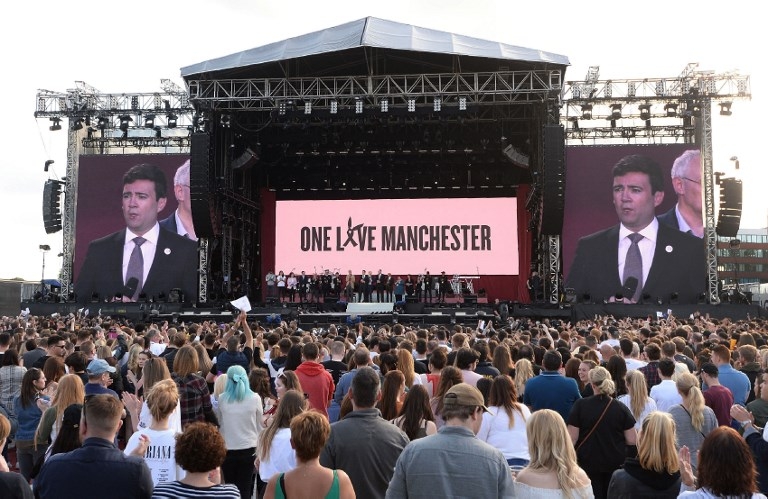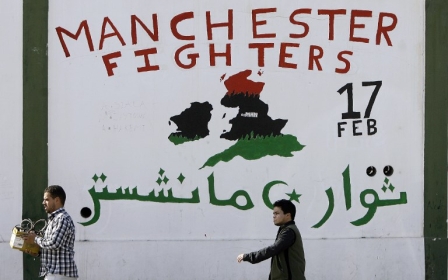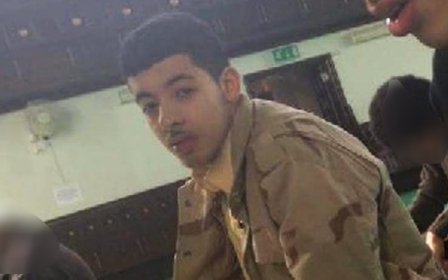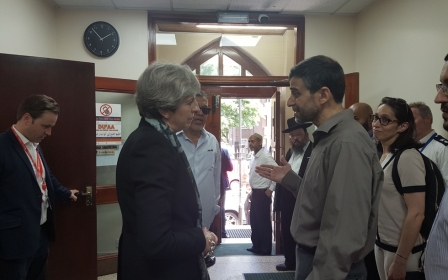Prevent strategy to be ditched in Manchester in wake of attack

The Prevent strategy in the Greater Manchester area is to be replaced as part of a broader shake-up of counter-terrorism policy in the region, the mayor has said.
The announcement comes amid growing reports of rising Islamophobia in the region following a suicide bomb attack that killed 22 people and injured more than 250 others.
Andy Burnham, the mayor of Greater Manchester, said the controversial counter-terror scheme was too "top-down" despite some successes.
He said: "Prevent, as it's currently configured, will only take you so far. There has been a feeling of disengagement because of the way it goes about its work.
"We're saying that can't be allowed to carry on. It will only succeed if there's true community buy-in at the grassroots level, and the information comes that way. "
'It (Prevent) will only succeed if there's true community buy-in at the grassroots level'
- Andy Burnham, mayor of Greater Manchester
Burnham's announcement comes as an independent review in the wake of the Manchester Arena bombing was also announced. The review will examine the region's "preparedness and response to the terror attack and identify any lessons learned for the emergency services".
His plans to replace Prevent run counter to proposals put forward by Theresa May, who committed to expanding the controversial counter-terror strategy following the Manchester and London Bridge attacks.
May also outlined plans to use the Prevent strategy to focus more on far-right extremism after a van attack that mowed down Muslim worshippers as they were leaving late night Ramadan prayers in Finsbury Park.
She used the Queen's Speech to announce plans to establish a commission into counter-extremism.
New commission
Burnham said a new commission would be established to tackle violent extremism and promote social cohesion in Greater Manchester. This commission will be led by Rishi Shori, the leader of Bury Council, and Jean Stretton, the leader of Oldham Council, and used to review Prevent.
His commission will publish an interim report by the end of the year and a final report in 2018.
Speaking at the announcement of the review, Burnham said a "difficult conversation" was needed about rising extremism in Britain's communities.
"One of the most difficult aspects of this attack was the fact that the perpetrator grew up here," he said.
"In my view, tackling extremism has got to begin with families and communities. We all need to ask what more we can do to identify those that pose a risk to others."
Growing Islamophobia
Incidents of Islamophobia soared after the suicide attack, despite the unprecedented shows of unity between communities in Manchester.
Mosques have had to increase security measures following a spike in Islamophobic incidents after the devastating bomb attack.
Other incidents also include Muslim women being attacked and spat at on public transport.
Local leaders have told the local Manchester Evening News that many Muslims were experiencing a "new kind of hatred" in the last few weeks of Ramadan.
Tensions escalated further during a rally in the city centre earlier this month.
Eight people were arrested during the UK Against Hate protest, led by former English Defence League leader Tommy Robinson.
New MEE newsletter: Jerusalem Dispatch
Sign up to get the latest insights and analysis on Israel-Palestine, alongside Turkey Unpacked and other MEE newsletters
Middle East Eye delivers independent and unrivalled coverage and analysis of the Middle East, North Africa and beyond. To learn more about republishing this content and the associated fees, please fill out this form. More about MEE can be found here.




